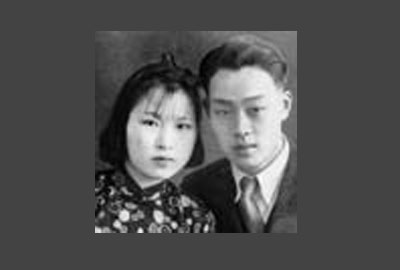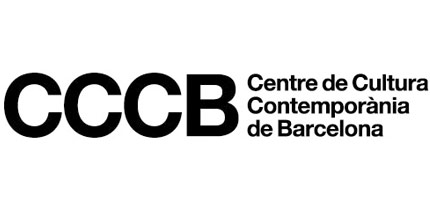Kosmopolis 2004
Exhibition
The world of Gao
A visit to the plural work of Gao Xingjian
A small-format exhibition devoted to the creative world of Gao Xingjian, winner of the Nobel Prize for Literature (2000). The exhibition sets out to show the different registers of Gao Xingjian, novelist, painter, playwright and essayist who resists modes and classifications, a plural artist who has explored the main issues of life and the human soul, taking up his position at the junction of paths that reconcile (and erode) the East-West dichotomy.
The exhibition brings together a selection of forty works considered to be the artist's ‘most intimate collection'. It also presents an audiovisual about the opera Snow in August, inspired by the founder of Zen Buddhism, as well as an exclusive interview with Gao produced specially for the exhibition. A selection of texts, unpublished photographs and part of the manuscript of the novel Soul mountain complete the material on show.
The world of Gao is presented in the framework of year two of Kosmopolis. International Festival of Literature
Curators: Cristina Carrillo, Juan Insua
Participants: Gao Xingjian
This activity is part of Kosmopolis 2004, Kosmopolis
1.- Storytelling in freedom
The texts of Gao, Nobel Prize for Literature 2000, provide the thread of the exhibition: from his childhood in China, via the traumatic experience of the Cultural Revolution to his exile in France in the late eighties.
The World of Gao reveals the internal coherence of a literary work characterised by a mixture of techniques, styles and genres, a body of work in which the musicality of language plays an essential part and the categorical imperative is to create ‘outside the norms' and the various ‘isms'.
The exhibition accords particular importance to Soul mountain , considered the author's masterwork. This unclassifiable novel condenses stories and legends from Chinese oral tradition, at the same time addressing the dilemmas of Western literature: the polemic between modernism and realism, the different conceptions of the novel, ‘committed' literature, the exploration of plural I , the short-sightedness of critics and academies, the paradoxes of history, the myth of the author, etc.
‘ People love to set themselves up as my teacher, my director, my judge, my advisor, my arbitrator, my big brother, my confessor, my reputed critic, my spiritual director, my boss, without ever concerning themselves as to whether I really need them; they all want to be my saviour, my henchman (the sort that hits me, not the sort that fights for me), my new father and mother because the real ones are dead, or they even want to become my motherland, when I don't know what that is, or if I even have one. '
Gao Xingjian, Soul mountain
2.- The most intimate collection
Gao brings a new impetus to the great Chinese tradition of painting with ink. His works, situated between abstraction and figuration, express the subtle nuances of the existential labyrinth, a sensuality of forms and the search for a state in which the I explores its shadows, throwing new light on a way of looking at the inner world.
The World of Gao presents the artist's ‘most intimate' collection: forty works arranged to form an itinerary that establishes comparative sequences with the paintings of the Ming Dynasty and the influences of Western painting, with examples of ink drawings belonging to Picasso and H. Michaux.
‘Your ink paintings do not change that tradition that is a deep as it is solid, something they could in fact never do. You merely direct your gaze towards the West introducing into your paintings the quality of the material and the sensibility found in a different tradition, drinking from other sources.'
Gao Xingjian, Pour une autre esthétique
3.- The masks of the I
The exhibition devotes a special section to Gao's work for the theatre, including Signal d'alarme (1982), Arrêt de bus (1983), L'homme sauvage (1985), La fuite (1989) Le somnambule (1993) and Le Quêteur de la Mort . It also presents the opera Snow in August, inspired by the life and thought of Hui Neng, the founder of Zen Buddhism; and a documentary with the making of its production in 2003 for Taipei Television (PTS Taiwan: Public Television Service Foundation).
‘Western avant-garde theatre dismisses realism, but my experimental theatre often feeds on real life. Western avant-garde theatre proclaims the anti-theatre, but I prefer to return to the sources of the traditional Chinese drama, to return to the dramatisation and the theatricalness so often lost in contemporary theatre, forcing myself, when composing and performing, to discover new dramatic and performing possibilities and put them into practice.'
Gao Xingjian, La raison d'être de la littérature
4.- An exclusive interview
The exhibition includes an exclusive interview with Gao, filmed in Paris. The interview, specially conceived for the exhibition, forms a guiding thread and is also presented as a synthesis of Gao's creative universe. The artist talks in detail about his various facets as writer, painter, playwright and essayist, uncovering the keys to his life and works.
‘What is creation? Certainly not repetition, not being carried along by the norms. All norms bother me. That's why I was rather poorly considered to start with, because what I did could not be classified as a "novel". Even before they put a political label on me, I did not form part of the aesthetic canon.'
‘Rather than speaking of reality, I prefer to speak of what is real, what we feel inside, the essence of life.'
‘I paint in silence. I make no distinctions between abstraction and figuration.'
Excerpts from the interview
Related contents
Gao Xingjian's world
Soy Cámara online
A special episode dedicated to Gao Xingjian, Chinese writer, painter, and playwright. He was awarded the Nobel Prize in Literature in 2000. In 2004, a team from the CCCB traveled to Paris and interviewed Gao Xingjian at his home. He told us about his childhood, his first contacts with literature ...
Interview with Gao Xingjian
Kosmopolis 04 - The world of Gao Xingjian
An exclusive interview with Gao Xingjian produced specially for the exhibition "The World of Gao".

